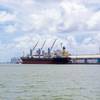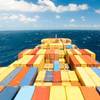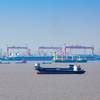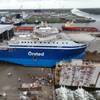Warning on Dangers of Cargo Fumigation at Sea
The UK P&I Club says it has received reports of a number of accidents and injuries to crew members resulting from the inadvertent release of highly toxic phosphine gas or the effects of fires and explosions, both caused by the unsafe disposal of residues of aluminium phosphide following the fumigation of cargoes in transit. The Club has consequently issued a loss prevention circular, summarised as follows:
- International guidance and recommendations on fumigation on board ships is contained in MSC Circulars 12641 and 13962 and the IMSBC Code3. These stress that:
- Fumigation in transit should only be carried out at the discretion of the Master
- The Master should be aware of the regulations of the Flag State of Administration having regard to fumigation in transit,
- When phosphine generating formulations (of the type with which this bulletin is concerned) are used, any collected residues may ignite.
- The Ship Manager’s ISM Code should include a section dealing with fumigation.
UK P&I Club explains that accidents have occurred during and after discharge of the cargo, sometimes caused by a failure to follow written advice provided by fumigation contractors at the load port.
Fumigant formulations
Phosphine is a well established insecticide suitable for the fumigation of bulk cargoes such as grain. Phosphine is also poisonous to humans at relatively low concentrations and can form flammable gas:air mixtures. Phosphine can be conveniently generated on and in cargo in the holds by the reaction of atmospheric moisture with aluminium or magnesium phosphide formulations placed in the holds by specialist fumigation contractors.
In conclusion
Phosphide fumigants can be hazardous, but by carefully following the guidance and warnings in MSC Circulars 1264 and 1396, and the IMSBC Code and the manufacturer’s instructions for the disposal of spent or partially spent material, accidents and injury can be avoided.
Source: The UK P&I Club










